Honorary Consul Republic of Namibia
Saint Petersburg and Lenigradsky Region
CONSUL
Mr. Albert Beyneshev was appointed as a Honorary Consul for Saint Petersburg and the Leningradsky Region by Namibian Government on August the 3-rd, 2022 in order to promote business, tourism and a cultural ties. The Letter of Appointment was received from the Deputy Prime Minister and the Minister of International Relations and Cooperation Hon. Netumbo Nandi-Ndaitwah in Windhoek. The Honorary Consulate is situated at Dinamovskaya St, 2, Saint Petersburg, 197110, Russian Federation. Metro station: Krestovsky Ostrov.
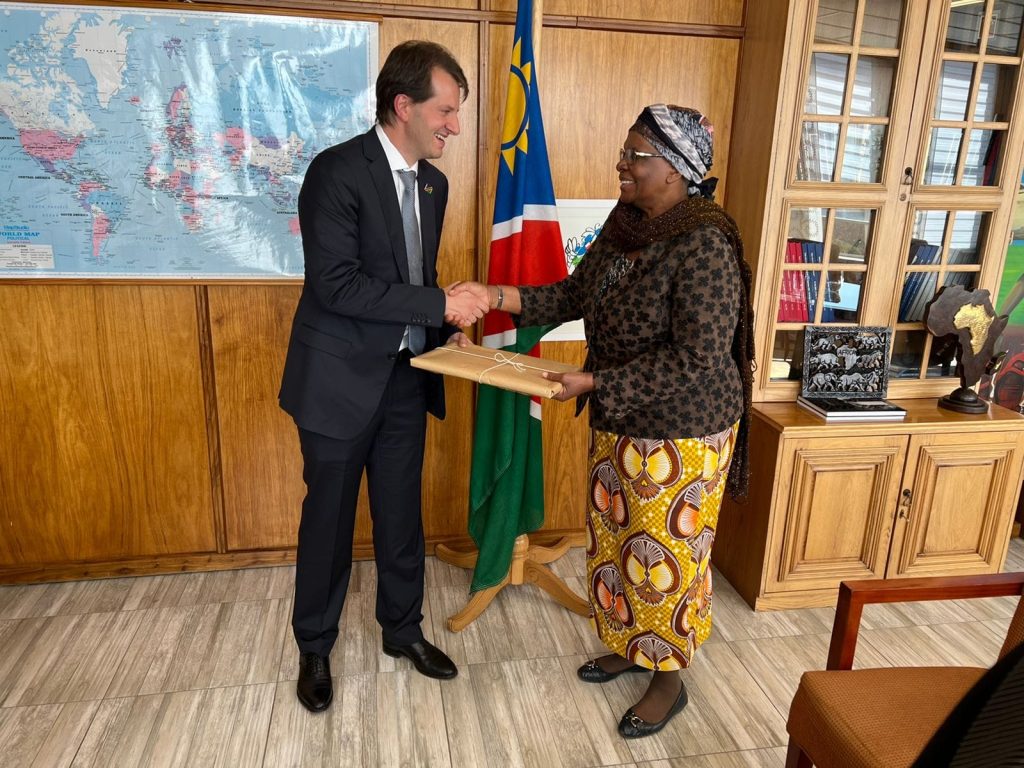
NAMIBIA
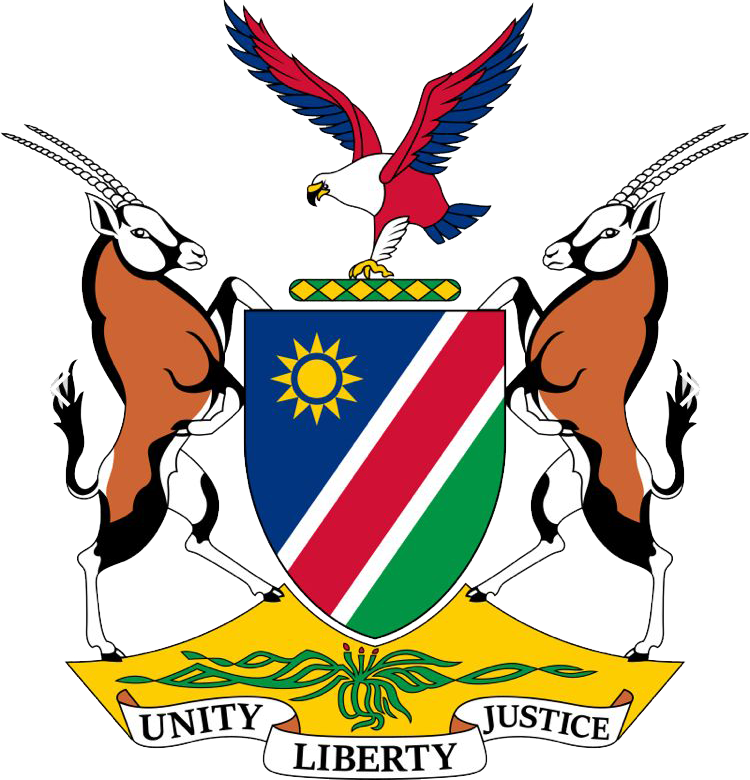
Namibia officially the Republic of Namibia, is a country in Southern Africa. Its western border is the Atlantic Ocean. It shares land borders with Zambia and Angola to the north, Botswana to the east and South Africa to the south and east. Although it does not border Zimbabwe, less than 200 metres (660 feet) of the Botswanan right bank of the Zambezi River separates the two countries.
Namibia gained independence from South Africa on 21 March 1990, following the Namibian War of Independence. Its capital and largest city is Windhoek. Namibia is a member state of the United Nations (UN), the Southern African Development Community (SADC), the African Union (AU) and the Commonwealth of Nations.
The President of the Republic of Naibia is His Excellency Hage Gottfried Geingob (born 3 August 1941) is a Namibian politician, serving as the third president of Namibia since 21 March 2015. Geingob was the first Prime Minister of Namibia from 1990 to 2002, and served as prime minister again from 2012 to 2015. Between 2008 and 2012 Geingob served as Minister of Trade and Industry. He is also the current president of the ruling SWAPO Party since his election to the position in November 2017.
In November 2014, Hage Geingob was elected president of Namibia by an overwhelming margin. In November 2017, Geingob became the third president of SWAPO after winning by large margin at the party’s 6th Congress. In August 2018, Geingob began a one-year term as chairperson of the Southern African Development Community.
The Founding President of the Republic of Namibia is Samuel Shafiishuna Daniel Nujoma, Namibia achieved independence from South Africa in 1990, holding its first democratic elections. SWAPO won a majority and Nujoma was elected as the country’s first President on 21 March 1990. He was re-elected for two more terms in 1994 and 1999. Nujoma retired as SWAPO party president on 30 November 2007.
FOUNDING PRESIDENT
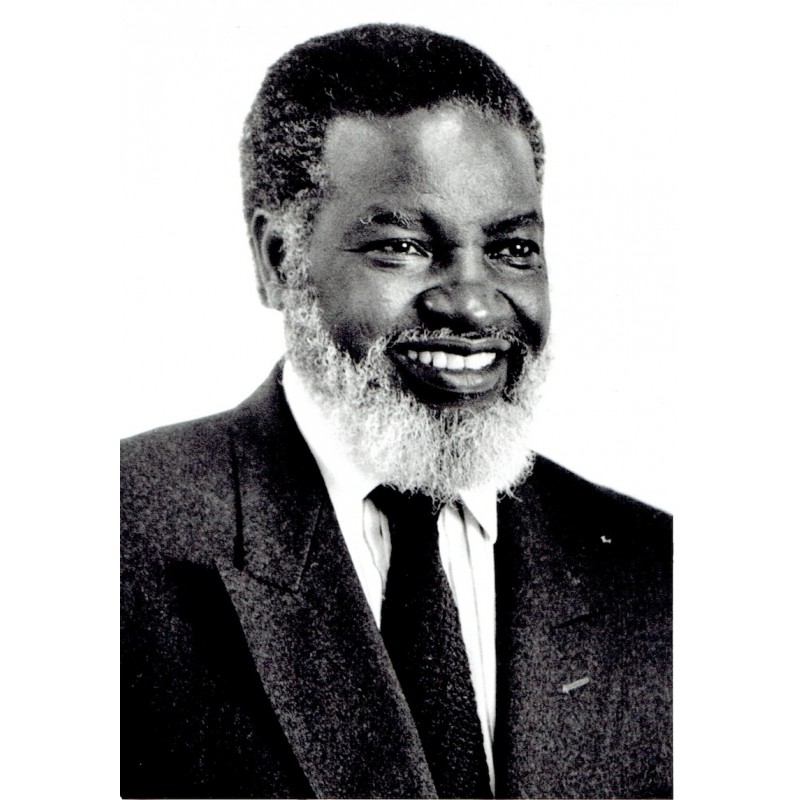
The Founding President of the Republic of Namibia is Samuel Shafiishuna Daniel Nujoma, born 12 May 1929 is a Namibian revolutionary, anti-apartheid activist and politician who served three terms as the first President of Namibia, from 1990 to 2005. Nujoma was a founding member and the first president of the South West Africa People’s Organization (SWAPO) in 1960. Prior to 1960, SWAPO was known as the Ovambo People’s Organisation (OPO). He played an important role as leader of the national liberation movement in campaigning for Namibia’s political independence from South African rule. He established the People’s Liberation Army of Namibia (PLAN) in 1962 and launched a guerrilla war against the apartheid government of South Africa in August 1966 at Omungulugwombashe, beginning after the United Nations withdrew the mandate for South Africa to govern the territory. Nujoma led SWAPO during the lengthy Namibian War of Independence, which lasted from 1966 to 1989.
EMBASSY
I welcome all our actual and potential partners to the website of the Embassy of the Republic of Namibia in Moscow, the Russian Federation. Namibia is a modern and accessible country with excellent infrastructure and business opportunities, making it an undisputable gateway to Southern Africa.
Namibia offers an excellent transport, communication and banking infrastructure. The Port of Walvisbay has demonstrated extensive growth on annual basis. The Namibian Ports Authority – Namport leads the state of the art growth, as well as the transport corridors linking Walvisbay not only to landlocked countries, such as Botswana, Zimbabwe, Zambia and Democratic Republic of Congo (DRC) but also to Angola- to the West on the Atlantic Ocean, South Africa, and Mozambique – to the East on the Indian Ocean.
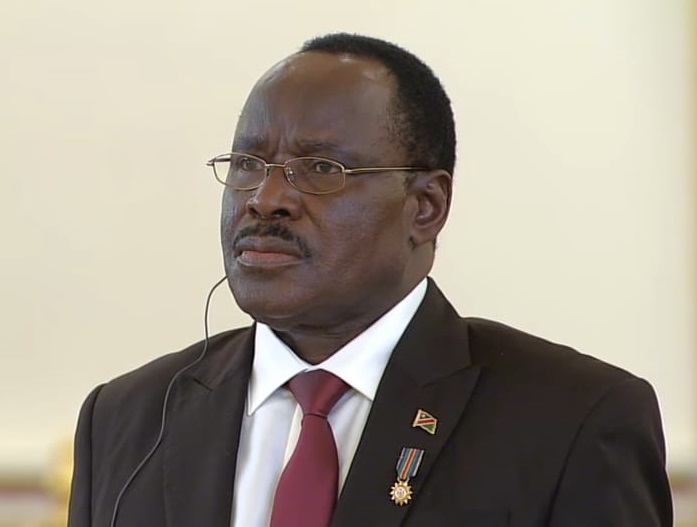
In view of our policy of economic diplomacy, the Embassy in Moscow continues to market Namibia as the most excellent destination for tourists and an ideal country for trade and investment. Namibia is truly one of the most politically stable countries in Africa, where peace and tranquility is real and the footprint of democracy vividly visible.
The Government and the people of Namibia are committed to democracy and respect the rule of law. While Namibia has a rich ethnic diversity, today its people are united as one, thanks to the Government’s foresight policy of national reconciliation.
On the tourism sector, our valued partners are invited to visit Namibia and experience the fantastic diversity of plant and animal life as well as the strikingly different climate and land formations found in the country. Whatever your destination, in the breadth and length of Namibia, no two days will be the same. Each region of the country has something different to offer, inspired by the elements, the surroundings and natural materials. Visit Namibia and experience all the country’s natural wonders and resources.
Every year, more and more of those who made wise decisions to visit the country as tourists discover the breathtaking beauty of Namibia with its magnificent wealth of cultures, the endless desert, wildlife and spectacular scenery. Namibia’s striking landscape and clean environment makes it an exceptionally attractive place to visit.
Namibia is a country with abundance of natural resources, among them, a wide range of mineral deposits including world class gem diamonds and uranium, copper, lead, zinc, semi-precious stones, industrial minerals, salt and fluorspar. Namibia’s water are rich in fish and other marine resources, with both demersal and pelagic species, which place the country among the top ten (10) nations in the international fishing sector.
Namibia’s agricultural sector is also very critically imperative to the country’s economy with a thriving red meat industry and the cultivation of crops such as maize, wheat, pearl millet, sorghum, beans and cotton.
As the Namibia Government’s development strategy puts industrialization to afore, one of the main tasks of the Embassy in Moscow is to interest and attract investors in the field of setting up joint venture manufacturing industries and assembling plants to produce different goods and materials in Namibia. The Namibian Government is very keen and willing to facilitate such processes and render necessary support to the serious investors in this regard.
As the Namibian Government strives to achieve its goal and vision of becoming a developed industrialised nation by 2030, one of the prime tasks of the Embassy in Moscow is to seek and promote maximum cooperation in the sphere of education and training of as many Namibian students as possible in the countries of accreditation. The objective is to produce a critical mass of well trained and highly skilled professionals who would steer the country’s industrialization and development process.
On the market side, Namibia has preferential access to about 200 million inhabitants of the Southern African Development Community (SADC) as one of the 15 member states.
Namibia also belongs to the Southern African Customs Union (SACU) affording duty and quota free to the markets of Botswana, Lesotho, South Africa and Swaziland.
Namibia is a signatory to the Cotonou Agreement, giving the country duty free access to the European Union for a wide range of manufactured and agricultural products. To those who would make wise decisions to invest in Namibia, the country will offer among the most attractive fiscal incentives in Africa via the Export Processing Zone (EPZ) regime.
Namibia offers an advantageous legislative and fiscal environment and a government keen to foster active private business and entrepreneurship, the engines of economic growth and prosperity.
H.E. Clemens Handuukeme Kashuupulwa
Ambassador Extraordinary and Plenipotentiary of the Republic of Namibia to the Russian Federation
Contact Us
+7 (499) 230 32 75
+7 (499) 230 22 74 (Fax)
info@namibian-embassy.ru
Embassy of the Republic of Namibia, 2nd Kazachy Lane, House No. 7, Moscow, 119180.
INVESTMENT

MINING
Mining contributes to 25% of the country’s income. It is the largest contributor to the Namibian economy. Namibia has various natural resources including diamonds, uranium, copper, gold, lead, tin, lithium, cadmium, zinc, salt and vanadium.
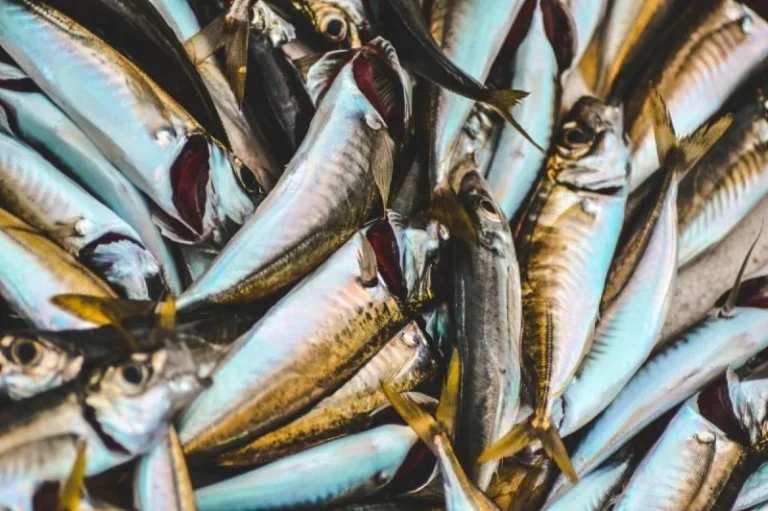
FISHING
Namibia is one of the leading capture fisheries nations in the World. The annual marine landings of about 550,000MT valued at about N$ 7 billion (about 800 million US$) ranks Namibia as the 3rd largest African capture fisheries nation after Morocco and South Africa, and 30th worldwide.
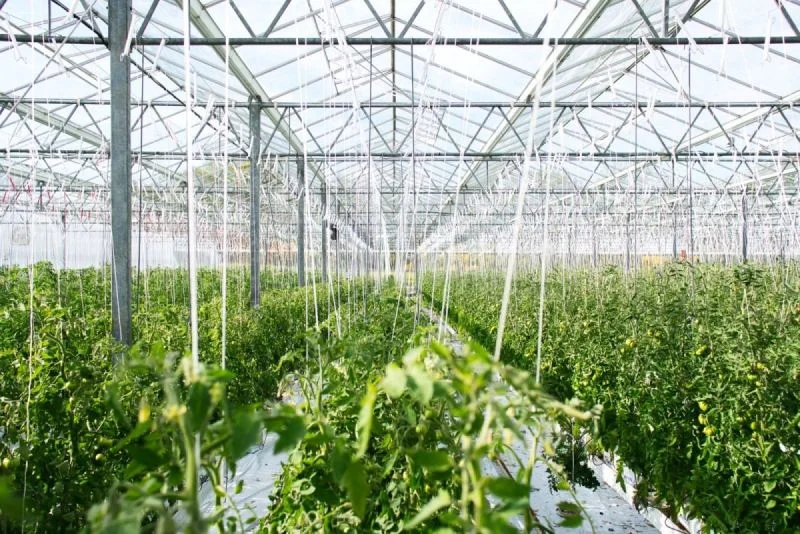
AGRICULTURE
In Namibia, agriculture contributes ±5% of the national Gross Domestic product (this excludes fishing). Primary products include livestock and meat products, crop farming and forestry.
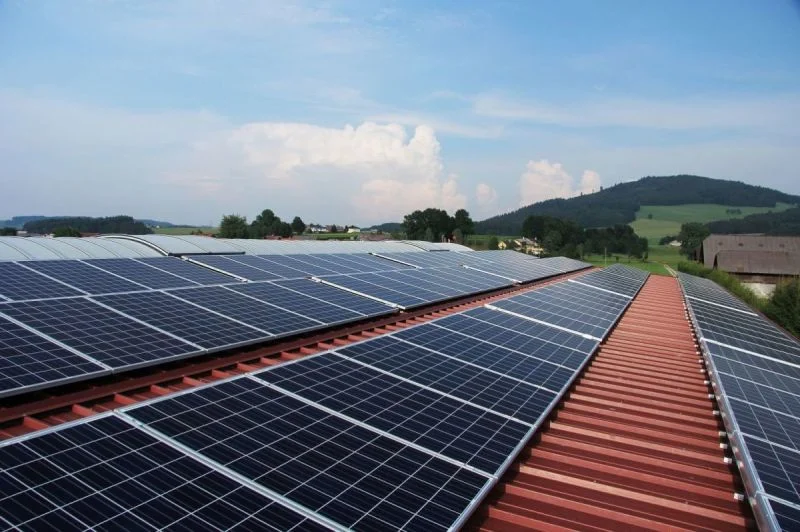
ENERGY
Backed by significant renewable energy potential, sizeable hydrocarbon discoveries in 2022 and new deals to explore green hydrogen development, Namibia is both ambitious and committed towards expanding the domestic energy sector to meet local and regional demand.
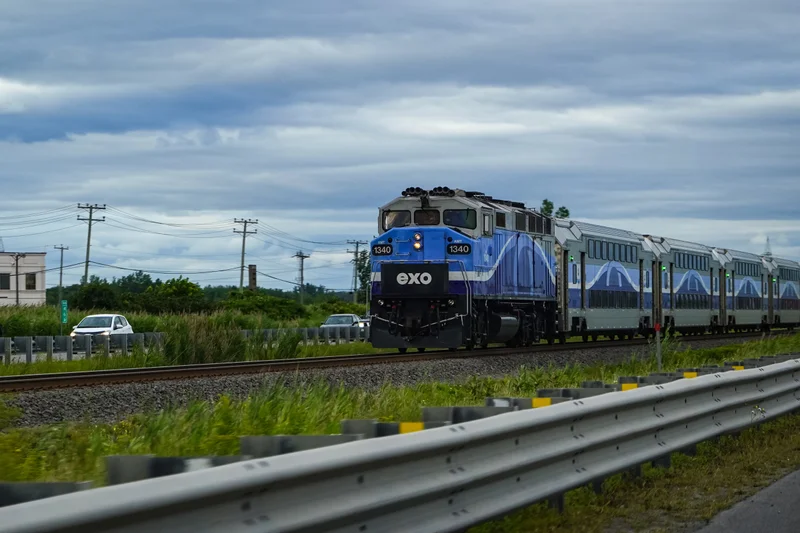
INFRASTRUCTURE
Namibia is home to a comparatively small construction market in value terms but there is growth potential on offer. Improving global demand for commodities, as well as rising prices, will draw investment in Namibia's mining sub-sector, while the expansion of tourism will drive investment in transport infrastructure.
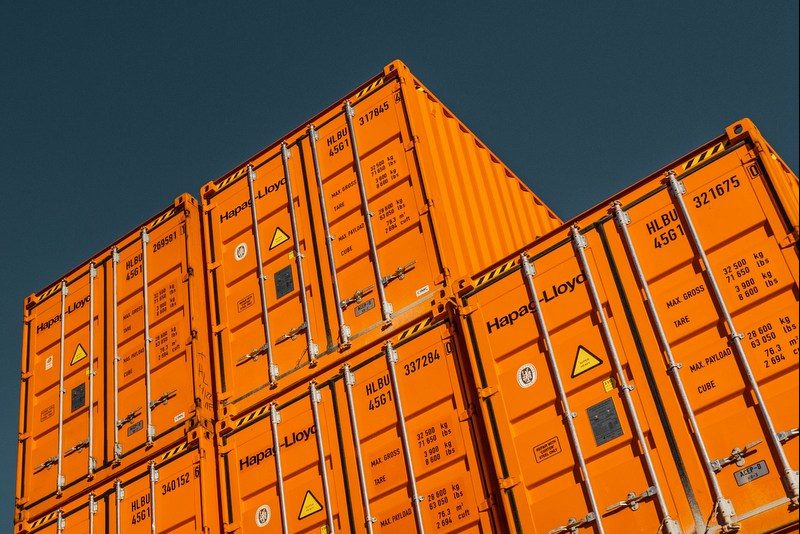
TRADE
Namibia recognises the crucial role foreign direct investment plays in stimulating economic growth, wealth creation and poverty reduction. For this reason, the Namibian Government's main task is to promote inward investment into Namibia and to foster two-way trade.
TOURISM

Made up of seven cluster regions, with some comprising sub-regions, Namibia is a country of infinite opportunities and diversity, from its topography and people to its culture and wildlife. Yet, despite the variety in its offerings throughout the various regions, Namibia remains one of the most beautiful countries worldwide, offering travellers a kaleidoscope of activities and adventures to enjoy during their stay in the land of contrasts.
Whichever region captures your imagination, you can be assured of a holiday experience second to none. Namibia charms its way into your soul, ensuring that even though you will leave Namibia after your trip, Namibia will never leave you. There is a good chance you will return to this land of endless horizons to explore its hidden treasures further.
